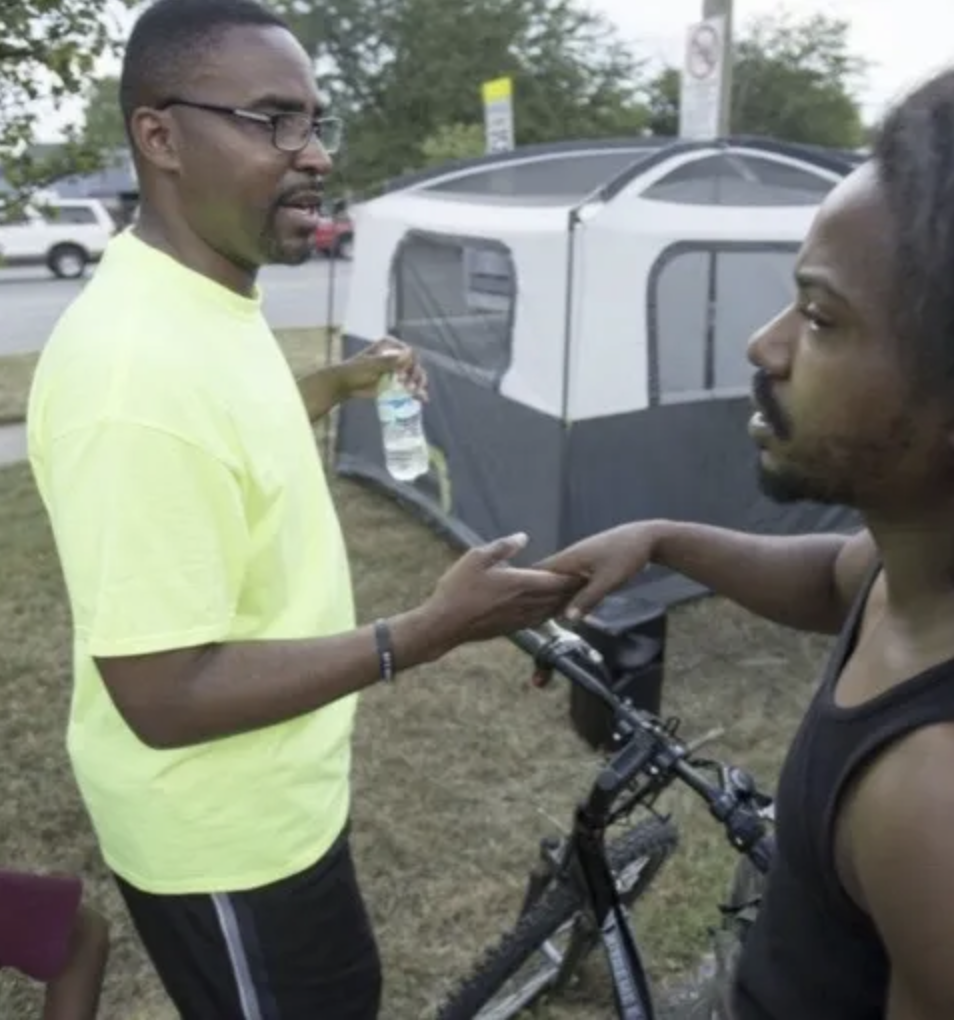 Last week, the Indianapolis Recorder reported on the resignation of Pastor John Girton from Christ Missionary Baptist Church. After five years of leading the church in which he had been baptized, a church that was formerly lead by his uncle, he had to quit. "Pastor G," as he is commonly called, isn't old. He's not ill. He is burned out.
Last week, the Indianapolis Recorder reported on the resignation of Pastor John Girton from Christ Missionary Baptist Church. After five years of leading the church in which he had been baptized, a church that was formerly lead by his uncle, he had to quit. "Pastor G," as he is commonly called, isn't old. He's not ill. He is burned out.
Here's why: According to the Schaeffer Institute, 70 percent of pastors constantly fight depression, and 71 percent say they are worn out. Eighty percent believe pastoral ministry has negatively affected their families; and 70 percent say they don't have a close friend.
All of this leads to roughly 80 percent of seminary and Bible school graduates leaving ministry within five years and 1,500 pastors leaving the pulpit every month. Then there's the high suicide rate. Now combine those negatives with the fact that urban pastors often have the added burdens of increased local crime, drug use, poverty, and violence. When a young man is shot in the middle of the night it is the neighborhood pastor who gets the call. He may never have seen this person in church, but he's the one who goes to the parents side, who plans a funeral, who is asked for money needed to properly bury the victim. Meanwhile some of these churches operate without the means to suitably pay the leaders of the church--much less basic church upkeep.
I know Pastor G. He has great energy and unbridled enthusiasm for his work. He spearheaded myriad efforts to promote needs in his community, and I bet he worked around the clock. But it was draining, and people can only run on empty for so long. Girton told the Recorder, "We did 10-15 years' worth of work in five years...I'm exhausted...We had to make positive changes in the community. We had to work to get the church out of debt, to build classrooms, put new paint on the walls. We had to fix the boiler. These were things that we just had to do... and it wore us out."
When we started UNITE INDY a number of years ago, we met pretty regularly with 50 or so urban pastors who were often pretty worn out as well. We asked them, "What are the the top three needs in your church and the top three needs in your personal life?" The answers mirror much of what Pastor G said about his reasons for leaving his church. Although UNITE INDY provided help in many of the personal areas--providing free or very low cost personal financial help, places for pastors to go for renewal and rest, and much more, there remained always an excess of need and never enough money in most these institutions.
In a city with large, rich congregations, it is disheartening that more cannot be done across the Christian spectrum to shore up those who keep the torch burning in our most challenged neighborhoods. Yet, even as I write this, I suspect that in those large, rich congregations, pastors are feeling the burn as well. I know in my own church, our lead pastor is helped by a large staff. Yet even they all seem to be a little out of breath with the challenges of multiple services, thousands of parishioners, and the endless personal demands.
We, who are churched must always pray for those in His service, give to support their work, and remember always, our pastors are like us, fallible, breakable, and imperfect, yet working for our good with every breath. Bless them. And to Pastor G: We know your good story doesn't end here.
Nancy








